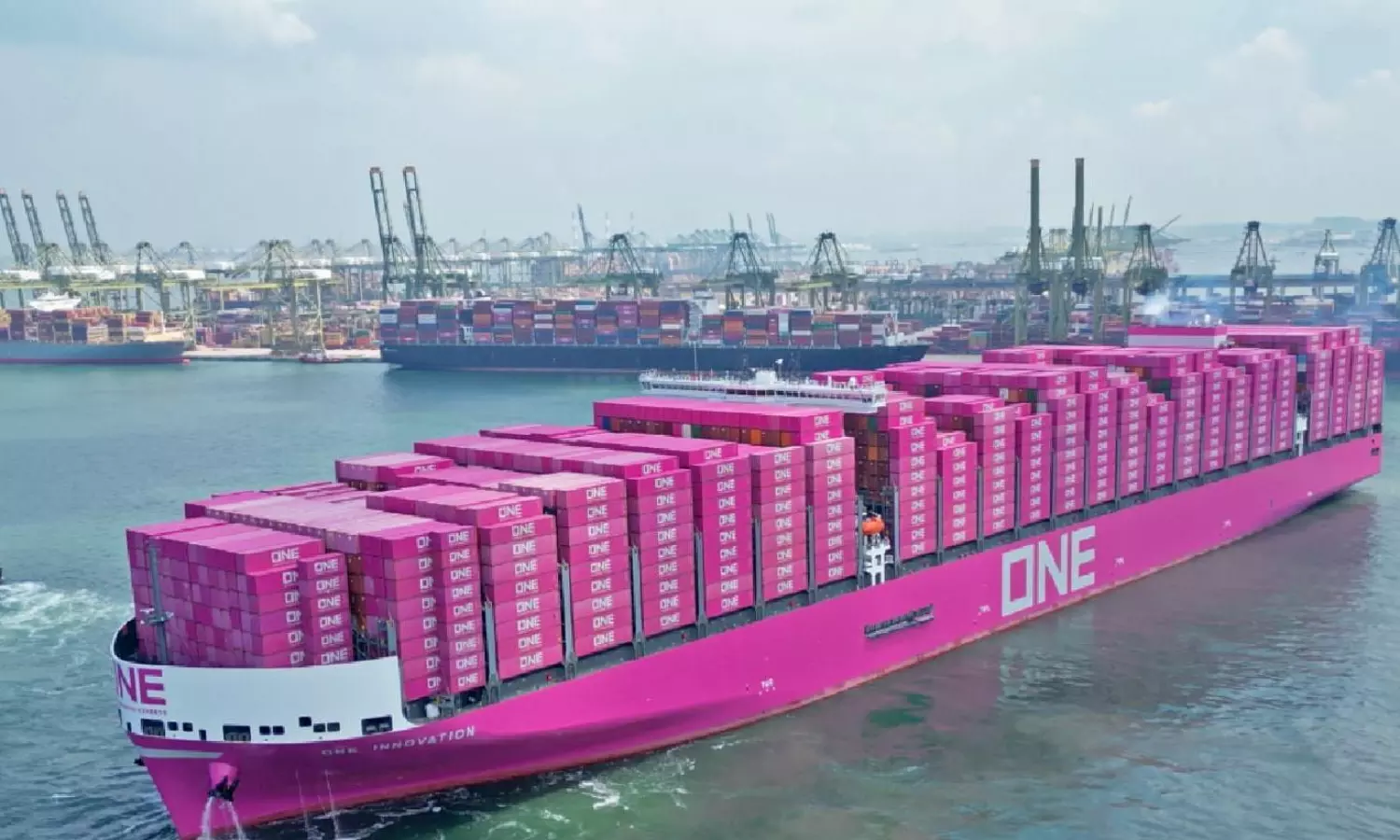ONE launches green shipping solution LEAF+
LEAF+ stands for low emission-able freight; "+ " symbolises advancement ONE anticipates from decarbonising supply chain

Ocean Network Express (ONE), a leading global shipping company, announced the launch of its reduced emissions shipping service – ONE LEAF+, designed to meet the shared decarbonisation aspirations of the shipping industry.
"ONE LEAF+ offers customers the opportunity to proactively manage their own emissions and minimise environmental impact across the value chain," says an official release.
ONE LEAF+ factsheet ONE LEAF+ stands for low emission-able freight. The “+” symbolises the advancement that ONE anticipates from decarbonising the supply chain. To calculate our customer’s existing emissions, ONE employs the industry-standard clean cargo working group methodology managed by Smart Freight Centre. ONE’s biofuel selection criteria is to use only regulation-compliant fuels. Concurrently, ONE employs used cooking oil methyl ester (UCOME) feedstock, which generates about 84 percent less well-to-wake CO2e emissions considering B100 compared to very low sulphur fuel oil (VLSFO). UCOME is a second-generation biofuel made from used cooking oil which meets the EU RED definition of waste or residue. |
ONE LEAF+ offers customers a range of benefits, including:
*Reduced carbon footprint: ONE will deploy regulation-compliant alternative fuels on designated vessels, allowing customers to reduce Scope 3 GHG emissions on their shipments with ONE.
*Added transparency: With ONE LEAF+, customers will receive certification indicating the CO2e savings verified by an independent third-party verifier for their shipments with ONE, empowering them to track their progress towards sustainability goals; and
*Enhanced partnerships: ONE will continue to collaborate with like-minded partners committed to sustainability initiatives.
“At ONE, we are fully committed to our target in achieving net-zero GHG emissions by 2050.” says Gilberto Santos, Senior Vice President, Global Commercial Service Management, ONE. “The launch of ONE LEAF+ underscores our commitment to sustainability and provides our customers with the tools and transparency they need to make informed choices about their Scope 3 GHG emissions.”


